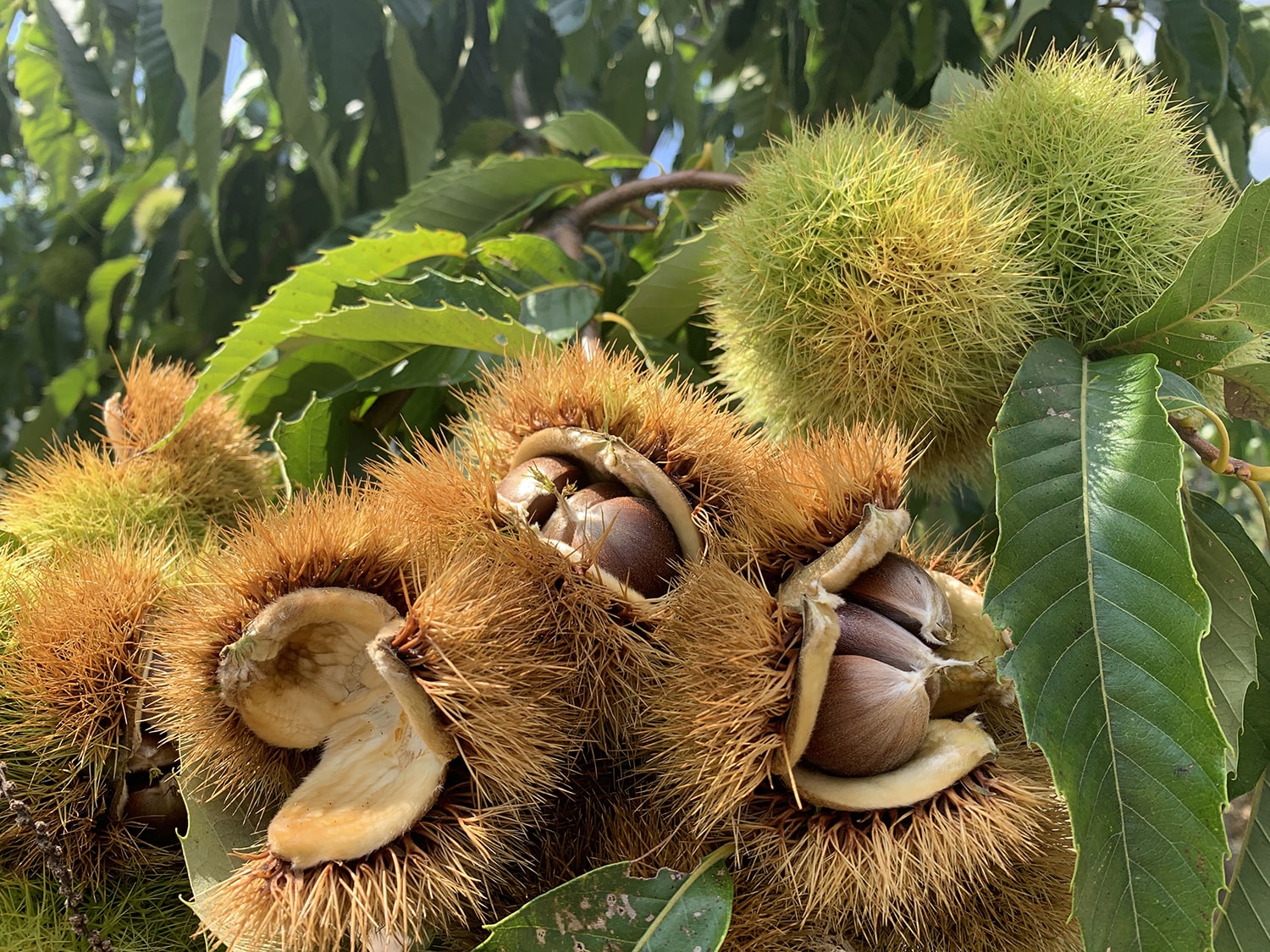American Chestnut: Resurrecting A Forest Giant
The American Chestnut towered in forests, then disappeared. Now, it’s staging a comeback.

 Science Diction is a podcast about words—and the science stories behind them. Subscribe wherever you get your podcasts, and sign up for our newsletter.
Science Diction is a podcast about words—and the science stories behind them. Subscribe wherever you get your podcasts, and sign up for our newsletter.
We have a favor to ask! We want to know more about what you like, what you don’t, and who you are—it’ll help us make better episodes of Science Diction. Please, take our brief survey. Thank you!
At the turn of the 20th century, the American chestnut towered over other trees in Eastern forests. The trees would grow as much as 100 feet high, and 13 feet wide. According to legend, a squirrel could scamper from New England to Georgia on the canopies of American chestnuts, never touching the ground.
And then, the trees began to disappear, succumbing to a mysterious fungus. The fungus first appeared in New York City in 1904—and then it spread. By the 1950s, the fungus had wiped out billions of trees, and effectively finished off the American chestnut.
Now, some people are trying to resurrect the American chestnut—and soon. But not everyone thinks that’s a good idea.
Sara Fitzsimmons is Director of Restoration, North Central Regional Science Coordinator, and Regional Science Coordinator Supervisor at the American Chestnut Foundation.
Susan Freinkel is the author of American Chestnut: The Life, Death, and Rebirth of a Perfect Tree.
Neil Patterson Jr. works at the Center for Native Peoples and the Environment at SUNY, and is a member of the Tuscarora Nation.
Bart Chezar is a chestnut enthusiast, and volunteers with the Prospect Park Alliance.
Listen to oral histories from people who grew up with the American chestnut.
This episode of Science Diction was produced by Shahla Farzan and Johanna Mayer. Elah Feder is our Editor and Senior Producer. D Peterschmidt is our composer, and they sound designed this episode. Lauren J. Young contributed research, and Danya AbdelHameid fact checked the episode. Our Chief Content Officer is Nadja Oertelt.
Shahla Farzan is a science journalist, PhD ecologist, and editor with American Public Media, where she helps produce science podcasts for kids. She loves showcasing the many weird and wonderful aspects of science—and encouraging young, curious thinkers to question and explore the world around them.
Johanna Mayer is a podcast producer and hosted Science Diction from Science Friday. When she’s not working, she’s probably baking a fruit pie. Cherry’s her specialty, but she whips up a mean rhubarb streusel as well.
Elah Feder is the former senior producer for podcasts at Science Friday. She produced the Science Diction podcast, and co-hosted and produced the Undiscovered podcast.